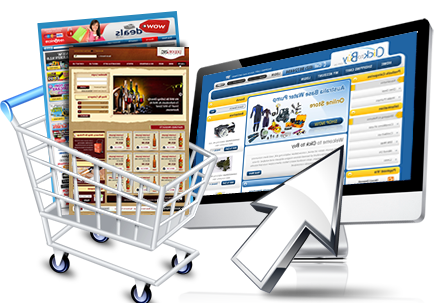E-Commerce

There are several types of e-commerce applications, each with their own unique features and characteristics. Here are some of the most common types of e-commerce applications:
- Business-to-Consumer (B2C): This type of e-commerce application involves businesses selling products or services directly to individual consumers. B2C e-commerce applications typically include features such as product catalogs, shopping carts, and payment processing.
- Business-to-Business (B2B): B2B e-commerce applications involve businesses selling products or services to other businesses. These applications typically include features such as bulk ordering, invoicing, and payment processing.
- Consumer-to-Consumer (C2C): C2C e-commerce applications allow individual consumers to buy and sell products or services to one another. These applications often include features such as online marketplaces, auctions, and payment processing.
- Consumer-to-Business (C2B): C2B e-commerce applications involve individual consumers selling products or services to businesses. This can include freelance work, such as graphic design or writing, as well as other types of services.
- Mobile Commerce (M-commerce): M-commerce applications are designed specifically for mobile devices, such as smartphones and tablets. These applications often include features such as mobile payment processing, location-based services, and mobile-specific marketing tools.
- Social Commerce: Social commerce applications integrate social media platforms, such as Facebook and Instagram, with e-commerce functionality. These applications allow businesses to sell products or services directly within social media feeds and include features such as social referrals and social sharing.
- Subscription-based E-commerce: Subscription-based e-commerce applications allow customers to sign up for recurring deliveries of products or services, often at a discounted rate. These applications often include features such as automatic payment processing and customizable delivery schedules.
E-commerce (electronic commerce)
E-commerce (electronic commerce) is a type of business model that involves buying and selling goods and services over the internet. An e-commerce application is a software program designed to facilitate the buying and selling of goods and services online.
E-commerce applications have become increasingly popular as more people shop online. These applications typically include features such as product catalogs, shopping carts, payment processing, and order tracking. They may also include marketing tools, such as email campaigns and social media integration, to help businesses attract and retain customers.
E-commerce applications can be customized to fit the needs of different businesses, from small startups to large corporations. Some applications are designed for specific industries, such as fashion or electronics, while others are more general in nature.
E-commerce applications can be customized to fit the needs of different businesses, from small startups to large corporations. Some applications are designed for specific industries, such as fashion or electronics, while others are more general in nature. One of the biggest advantages of e-commerce applications is their ability to reach a global audience. By selling products online, businesses can reach customers anywhere in the world, 24/7. This can help to increase sales and revenue, as well as build brand awareness and customer loyalty.
However, e-commerce applications also come with their own set of challenges, such as security risks, payment fraud, and managing customer data. It is important for businesses to carefully consider these challenges and take steps to mitigate them when using e-commerce applications.